Body Procedures
Pectoral Implants
Also known as pectoral augmentation or pec implants
Even with frequent exercise, some men find that they are unable to achieve the chest definition that they desire. Pectoral implant surgery is a method for improving chest contour. This procedure has become a popular option, particularly for men who are athletic or go to the gym and want to be able to show off their more sculpted, masculine chests.
When to Consider Pectoral Implants
- If your under-developed pectoral muscles make you feel self-conscious
- If you are athletic and wish to improve your chest contour
- If your chest is asymmetrical or otherwise deformed from birth or by an accident
Considerations
Pros
- Will improve chest contour and the look of muscle thickness or bulk
- Implants can be custom designed to provide a specific shape to your chest
- Increased self-confidence with your augmented “pecs”
Cons
- Implants will not improve the definition of your pectoral muscles
- Implants may yield unnatural, feminine results
- Asymmetry may occur if implants move or are displaced
These are the top three pros and cons to weigh when considering pectoral implants. If you want to focus on those specifically unique to you, please consult with your aesthetic plastic surgeon.
Are you a good candidate for pectoral implants?
Following are some common reasons why you may want to consider pectoral implants:
- You have under-developed pectoral muscles that have not been increased through weight lifting and exercise
- You are athletic and wish to improve your chest contour
- Your chest is asymmetrical or otherwise deformed from birth or by an accident
If you are in good general health and have a positive attitude and realistic expectations, you are most likely a good candidate for this procedure.
Detailed Procedural Info
- During your consultation, your surgeon will measure your chest and discuss the different size and shape implants that are available.
- You will be given general anesthesia or be heavily sedated before the procedure begins.
- A small incision (approximately two inches in length) is made in the hair-bearing region of your arm pit (the axilla).
- Special surgical tools are inserted through the incision and is used to create a pocket, or space, in between your pectoralis major and pectoralis minor muscles (chest muscles).
- The selected implant, based on measurements made prior to surgery, is inserted and positioned between the pectoralis muscles.
- The incision is closed and the procedure is repeated on the opposite side.
- After the procedure is complete, a compression garment may be placed to help minimize swelling or implant shift.
What are my options?
Pectoral implants come in a variety of shapes and sizes. Made of solid silicone that is relatively soft and flexible, these implants imitate the look and feel of muscle. Because they are not made from silicone gel or fluid, they will not leak or tear. If you have chest asymmetry or traumatic deformities, custom implants can be created by manufacturers.
Fat grafting to the chest is an alternative to pectoral implants; it can enhance definition and volume in slim patients, improve the muscular contour in athletic patients, and provide a muscular shape in heavier patients.
What will my pectoral implants incisions and scars be like?
Most commonly an incision of about two inches is made in the hair-bearing region of your arm pit area (the axilla). After the incisions heal, the resulting scars should be barely visible and are easily concealed.
Selecting a Surgeon
It’s important to choose your surgeon based on:
- Education, training, and certification
- Experience with pectoral implant surgery
- Your comfort level with him or her
After finding a board-certified plastic surgeon in your area who is experienced in performing pectoral Implant surgery, you will need to make an office appointment to set up your consultation. Generally, because of the in-depth nature of the consultation, there is a cost associated with the initial visit.
Your initial consultation appointment
During your initial consultation, you will have the opportunity to discuss your cosmetic goals. Your surgeon will evaluate you as a candidate for pectoral implant surgery and clarify what pectoral implants can do for you. Understanding your goals and medical condition, both alternative and additional treatments may be considered.
You should come to the consultation prepared to discuss your complete medical history. This will include information about:
- Previous surgeries
- Past and present medical conditions
- Allergies and current medications
Your treatment plan
Based on your goals, physical characteristics and the surgeon’s training and experience, your surgeon will share recommendations and information with you, including:
- An approach to your surgery, including the type of procedure or combination of procedures
- The outcomes that you can anticipate
- Your financial investment for the procedure
- Associated risks and complications
- Options for anesthesia and surgery location
- What you need to prepare for your surgery
- What you can expect to experience after surgery
- Show before-and-after photos of cases similar to yours and answer any questions
Questions to ask your aesthetic plastic surgeon
For a general list of questions to ask your surgeon about his/her background, find out about plastic surgery safety and to plan your procedure. We developed these questions to help you:
- Make the most informed and intelligent decisions about your procedure
- Confirm that you have the right surgeon for your procedure
- Make your initial consultation as rewarding as possible
- Understand your options, potential outcomes, and risks
It is important for you to take an active role in your surgery, so please use this list of questions as a starting point for your initial consultation.
- Am I a good candidate for pectoral implants?
- Are the results I am seeking reasonable and realistic?
- Do you have before-and-after photos I can look at for the procedure I am undergoing?
- Will my scars be visible? Where will my scars be located?
- What kind of anesthesia do you recommend for me?
- What will be the costs associated with my surgery?
- What will you expect of me to get the best results?
- What kind of recovery period can I expect, and when can I resume normal activities?
- What are the risks and complications associated with my operation?
- How are complications handled?
- What are my options if the cosmetic outcome of my surgery does not meet the goals we agreed on?
Preparing for Your Procedure
Your surgeon will provide thorough preoperative instructions, answer any questions you may have, take a detailed medical history, and perform a physical exam to determine your fitness for surgery.
In advance of your procedure, your surgeon will ask you to:
- Stop smoking before undergoing surgery to promote better healing
- Avoid taking aspirin, certain anti-inflammatory drugs, and some herbal medications can cause increased bleeding
- Regardless of the type of surgery to be performed, hydration is very important before and after surgery for safe recovery.
Pectoral implant surgery is usually performed on an outpatient basis. Be sure to arrange for someone to drive you home after surgery and to stay with you at least the first night following surgery.
What can I expect on the day of pectoral implant surgery?
Your pectoral implant surgery may be performed in an accredited hospital, free-standing ambulatory facility, or office-based surgical suite. Most pectoral implant procedures take approximately two hours to complete but may take longer.
- Medications are administered for your comfort during the surgical procedure.
- General anesthesia is commonly during your pectoral implant procedure, although local anesthesia or intravenous sedation may be desirable in some instances.
- For your safety during the surgery, various monitors will be used to check your heart, blood pressure, pulse, and the amount of oxygen circulating in your blood.
- Your surgeon will follow the surgical plan discussed with you before surgery.
- After your procedure is completed, you will be taken into a recovery area where you will continue to be closely monitored. A compression garment may be placed to help minimize swelling or implant shift.
You will probably be permitted to go home after a short observation period unless you and your plastic surgeon have made other plans for your immediate postoperative recovery.
Aftercare and Recovery
Your surgeon will discuss how long it will be before you can return to your normal level of activity and work. After surgery, you and your caregiver will receive detailed instructions about your postsurgical care, including information about:
- Drains, if they have been placed
- Normal symptoms you will experience
- Potential signs of complications
Immediately after your pectoral implant surgery
Immediately after surgery your chest muscles may feel tight, and you will be sore and stiff. Your incisions will heal in approximately 14 days and the implant healing will be complete in about 6 weeks.
When the anesthesia wears off, you may have some pain. If the pain is extreme or long-lasting, contact your physician. You will also have some redness and swelling after the surgery. Contact your surgeon to find out if your pain, redness, and swelling are normal or a sign of a problem.
Recovery time frame after pectoral implants
It is vitally important that you follow all patient care instructions provided by your surgeon. This will include information about wearing compression garments, care of your drains, taking an antibiotic if prescribed and the level and type of activity that is safe. Your surgeon will also provide detailed instructions about the normal symptoms you will experience and any potential signs of complications. It is important to realize that the amount of time it takes for recovery varies greatly among individuals.
How Long Will the Results Last?
The results from pectoral implant surgery are long-lasting.
Maintain a relationship with your aesthetic plastic surgeon
For safety, as well as the most attractive and healthy outcome, it’s important to return to your plastic surgeon’s office for follow-up evaluation at prescribed times and whenever you notice any changes in your chest. Do not hesitate to contact your surgeon when you have any questions or concerns.
Associated Costs
The cost of pectoral implants varies from doctor to doctor and from one geographic area to another.
Because placement of pectoral implants is elective surgery, insurance does not cover these costs. Many surgeons offer patient financing plans to make the procedure more affordable.
Choose your surgeon based on quality, training, and experience—not cost.
Limitations and Risks
Fortunately, significant complications from pectoral implant surgery are infrequent. Your specific risks for pectoral implant will be discussed during your consultation.
All surgical procedures have some degree of risk. Some of the potential complications of all surgeries are:
- Adverse reaction to anesthesia
- Hematoma or seroma (an accumulation of blood under the skin that may require removal)
- Infection and bleeding
- Changes in sensation
- Scarring
- Allergic reactions
- Damage to underlying structures
- Unsatisfactory results that may necessitate additional procedures
Other risks specific to pectoral implant are outlined below:
- Movement of the implants
- Asymmetry
- Numbness in your chest or upper arm
- Muscle spasms
You can help minimize certain risks by following the advice and instructions of your board-certified plastic surgeon, both before and after your pectoral implant surgery.
Harake Plastic Surgery
Dr. Mazen Harake
1050 Wilshire Drive
Suite 100
Troy, Michigan 48084

